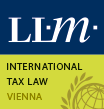Jennifer Roeleveld
Jennifer Roeleveld is an Emeritus Professor in the Faculty of Commerce and Director of the Tax Unit for Fiscal Research at the University of Cape Town. She previously was head of tax in the department of Accounting and then head of postgraduate tax studies in the Finance and Tax department of the University of Cape Town. She currently supervises Masters and PhDs in both South African and International Tax. Jennifer is a chartered accountant, has a LLM from the University of Cape Town and is a Chartered Tax Adviser with SAIT. She is a visiting professor on the LLM programme at Vienna University and has published extensively both locally and internationally in books and journals. She is currently a contributing author of Jutas Income Tax (SA), Bloomberg BNA (USA) country portfolios (author of the year 2019) and the Global Tax Treaty Commentaries (GTTC) of the IBFD. She is also a national contributor to the Observatory of Taxpayers Rights of the IBFD. She is president of the International Fiscal Association (IFA) South Africa, President of the 2024 IFA Congress in Cape Town and member of the IFA Supervisory Board. She is a member of the European Association of Tax Law Professors and member of the IBFD GTTC and World Tax Journal editorial boards. Jennifer was appointed as professor in Residence at the IBFD in Amsterdam for 2023. She is a serving member as a judge on the Frans Vanistendael award for international tax at the IBFD and also a juror for the IBFD GTTC annual university student competitions. In 2024 she was appointed to the board of ADIT.Courses:
South African Tax Law
The lecture aims to provide the necessary understanding of the South African tax law system - its origins and bases. It will briefly touch on “other taxes”, such as VAT, where relevant. It will deal with existing cross-border issues and developments such as cross-border services, deemed source and CFC rules, among other things. It will highlight the importance of mutual agreement procedures and the exchange of information. The treaty network that currently exists will also be covered. Specific and general anti-avoidance provisions and rules will be highlighted.
Back to list

